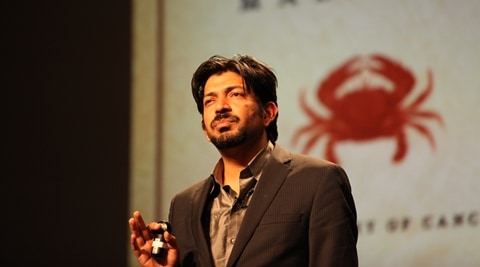

Siddhartha Mukherjee dazzled readers with his Pulitzer Prize-winning The Emperor of All Maladies in 2010. “Sid Mukherjee has the uncanny ability to bring together science, history, and the future in a way that is understandable and riveting, guiding us through both time and the mystery of life itself.” -Ken Burns Now includes an excerpt from Siddhartha Mukherjee ’ s new book Song of the Cell!įrom the Pulitzer Prize–winning author of The Emperor of All Maladies-a fascinating history of the gene and “a magisterial account of how human minds have laboriously, ingeniously picked apart what makes us tick” ( Elle). Given that the Cretans might have been the first modern humans in Europe, it is a fascinating story.The basis for the PBS Ken Burns Documentary The Gene: An Intimate History Now, researchers in population, molecular and evolutionary genetics are contributing to the investigation of the origins of Crete's population. Throughout the centuries, Greeks, Romans, Byzantines and Turks also migrated to Crete until the island became unified with mainland Greece in the early twentieth century. Neolithic farmers settled in the lowlands and became part of the Minoan civilization 4,000 years later.

Finds of pottery and ancient remnants of agriculture support the theory that the island's first permanent inhabitants arrived around 7,000 BC, possibly from Anatolia. Modern archaeologists, who have been researching the original human settlement of Crete since the latter half of the nineteenth century, offer a third, less fantastical version, which leaves no space for a mythological Europa. > …population geneticists have used non‐recombining DNA from the Y chromosome, mitochondrial DNA and other markers to probe, refine and redefine the prehistorical and historical record of migratory patterns in human history Either way, Europa ended up on Crete to become the ‘mother’ of Western civilization. relates the tale of Europa, but with a different twist: as an act of revenge, the Minoans, who had been living on Crete, kidnapped Europa and took her to their island. The Greek historian Herodotus ( circa 484–425 BC) also. Zeus went to the ocean and swam to Crete. While gathering flowers, Europa stroked the bull and ended up on his back. The ancient legends relate how Zeus seduced Europa, the daughter of a Phoenician king, by turning himself into a bull and hiding in the king's herd. Greek mythology tells us that Crete was the cradle of Western civilization.


 0 kommentar(er)
0 kommentar(er)
